Search Results
Showing results 201 to 220 of 508

Avogadro's Bubbly Adventure
Source Institutions
In this activity on page 7 of the PDF, learners investigate the solubility of gas in water at different temperatures. This experiment will help learners determine if temperature affects solubility.
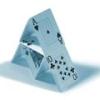
Critical Load
Source Institutions
In this activity, learners explore the concepts of structural engineering and how to measure the critical load, or the maximum weight a structure can bear.

Lego Man Jump
Source Institutions
In this activity, learners are challenged to create a parachute using easily sourced materials in order to transport a LEGO figure safely to the ground.
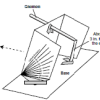
Using a Sundial
Source Institutions
In this activity (on page 12 of the PDF), learners make a sundial (shadow clock) appropriate for their geographic location in the northern hemisphere and use it to tell time.

Inside Out
Source Institutions
Learners draw and cut out shapes of organs from construction paper. Then they attach these organs to the body of one learner to make a life-sized map of all the internal organs.

Make a DNA Model
Source Institutions
In this activity, learners make a 3-D model of DNA using paper and toothpicks. While constructing this model, learners will explore the composition and structure of DNA.

Styrofoam Traps
Source Institutions
In this activity, learners use Styrofoam to collect organisms from a pond, estuary or marine environment and then examine what they have caught with a microscope.
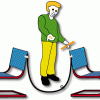
Raceways
Source Institutions
In this activity, learners build a model roller coaster to help the Mummy entertain the Atom's Family monsters. Learners assemble the roller coaster between two chairs using vinyl ceiling molding.

Zip Line
Source Institutions
In this design challenge activity, learners build a device to carry a Ping-Pong ball from the top of a zip line to the bottom in four seconds (or less!).
Shady Snakes
Source Institutions
In this activity, learners make pretend snakes and use them to explore estimation and measurement. Learners roll out clay snakes and estimate and measure their lengths and diameters.

Marble Ride
Source Institutions
In this activity, challenge learners to design a roller coaster ride for a marble using cardboard and other simple materials.

Comparing Crystals
Source Institutions
In this chemistry activity (page 3 of the PDF), learners will learn about crystals by growing their very own.

Make Your Own Pendulum
Source Institutions
In this demonstration about force and motion, learners will explore the forces that affect a pendulum A simple model pendulum comprised of a ball and string demonstrates how pendulums work as well as

Cabbage Juice Indicator: Test the pH of household products
Source Institutions
Learners make their own acid-base indicator from red cabbage. They use this indicator to test substances around the house.
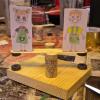
Magnetic Seesaw
Source Institutions
In this activity, learners build a seesaw powered by magnets.

Canjo
Source Institutions
In this activity, learners explore sound by constructing their very own banjo out of a coffee can. Learners experiment with the canjo to change the instrument's pitch and timbre.
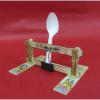
Catapult
Source Institutions
In this activity, learners build mini catapults using paint paddles and a spoon. Use this activity to introduce learners to forces and projectile motion.

Bernoulli and More Bernoulli
Source Institutions
This lesson guide includes six simple and quick activities to help learners better understand Bernoulli's Principle.

Milli's Super Sorting Challenge
Source Institutions
In this activity, learners separate materials based on their special properties to mimic the way recyclables are sorted at recycling centers.

Balloon Flinker
Source Institutions
In this activity, learners make a helium balloon "flink"--neither float away nor sink to the ground. Use this activity to introduce physics concepts related to gravity, density, and weight.
